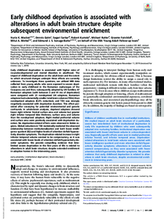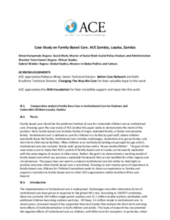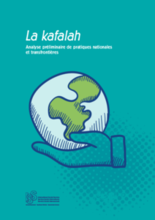Displaying 141 - 150 of 660
In this paper, the authors examined if high socio-economic status (SES) of families had an effect on youth’s adjustment by comparing 226 internationally adopted female Chinese youth who experienced pre-adoption institutionalization with 1059 non-adopted Chinese peers living in China, as well as 209 non-adopted American peers.
This paper offers a conceptually informed analysis of fostering and adoption social work and argues for more consistent inclusion of trans and non‐binary people.
This article explores the impact of preadoption history upon physical, mental, emotional, cognitive, and developmental well‐being of children and the need for adoptive parents, medical and mental health professionals, and schools to understand these impacts.
The study examined school adjustment among 119 internationally adopted children in Norway.
To investigate the impact of childhood deprivation on the adult brain and the extent to which structural changes underpin these effects, the authors of this study from PNAS utilized MRI data collected from young adults who were exposed to severe deprivation in early childhood in the Romanian orphanages of the Ceaușescu era and then, subsequently adopted by UK families.
The goal of this case study is to demonstrate a working model of family-based care in Zambia which can produce a replicable framework that can be modified for other regions and circumstances.
Country fact sheet for the UN Committee on the Rights of the Child; Philippines.
Through the analysis of over twenty country contexts, this study aims at clarifying in particular: Where does kafalah originate from? What are its characteristics in different States, and how is it recognised or enforced in another State?
This article explores changes in policy and practice in children’s services in the UK over the past 40 years and discusses the thinking that has underpinned them.
This article argues that the patchwork of legal protections across U.S. states means that many LGBTQ-headed families lack needed security, stability, and legal recognition.





